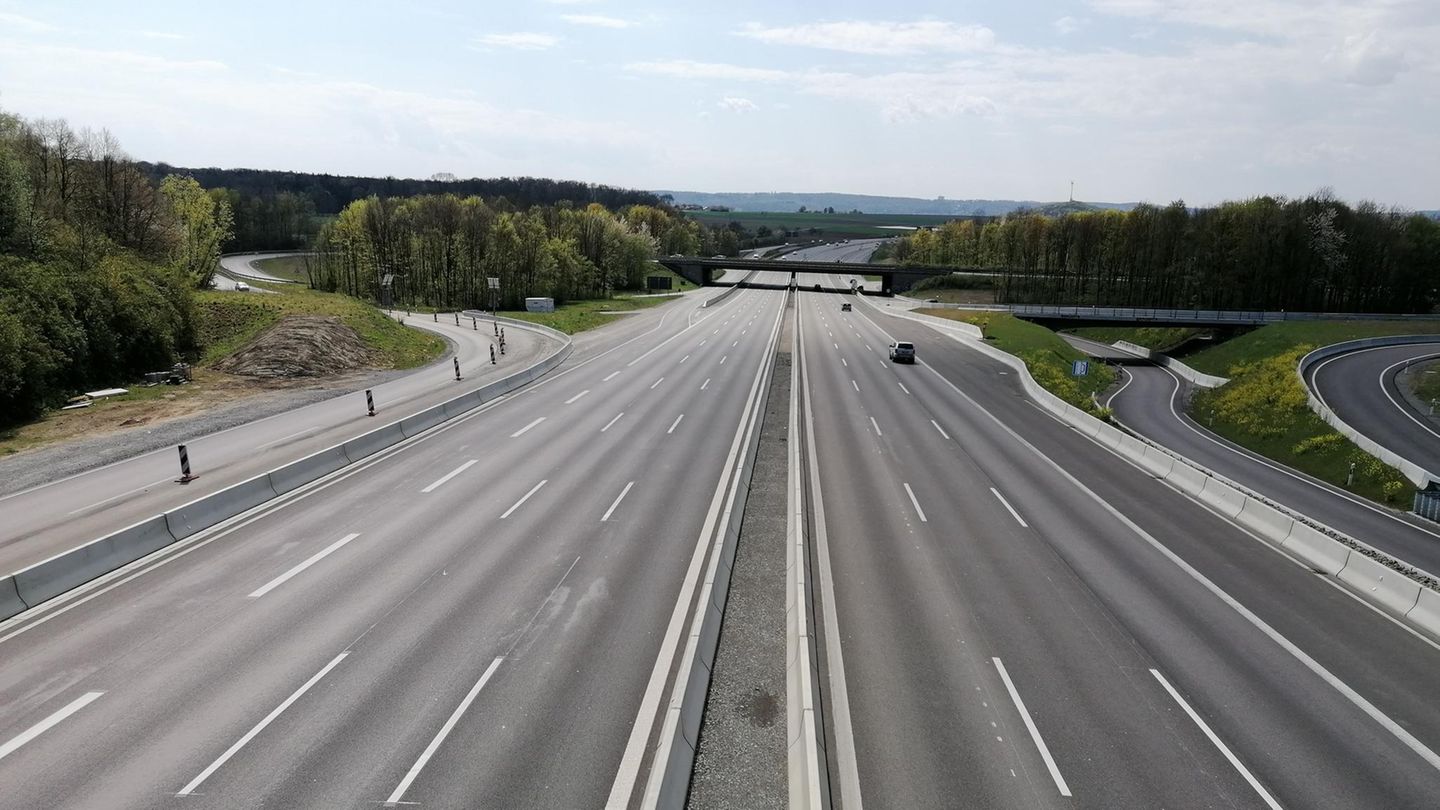In the midst of the struggle with the pandemic, the climate crisis is suddenly just around the corner. Another overwhelming problem. But dealing with the corona virus shows what the fight against the climate crisis could look like.
“The planet is in mortal danger and with it its inhabitants” – Federal Environment Minister Svenja Schulze chose big words as a comment on the new report of the Intergovernmental Panel on Climate Change. Very big words. Because clearly the content of the ICPP study can make one fear and anxiety: Climate change is picking up the pace, the 1.5-degree target is hardly tenable and a return to some “good old days” before the industrial revolution seems to be as good as impossible. Dark prospects. But do you want to save the whole world right away? Where are we still hard at work getting one of the worst pandemics in recent history under control?
Nobody has to worry about the planet
No, nobody has to worry about the planet. It will continue to circle the sun for a very long time. There will also continue to be life and a prosperous nature – but unfortunately the chances are good that it will no longer be our life, nor our nature, nor our environment or our climate. There is no shortage of doom superlatives in the climate protection debate, the only question is whether the pressure created in this way, not only to have to save the environment and the climate, but also to save the whole planet, may overwhelm and discourage one or the other.
Incidentally, professional climate deniers and neglecters like to use apocalypse scenarios to force activists into resignation and ultimately to idleness, as the US researcher Michael Mann writes in. Not that warning women like Svenja Schulze had something like that in mind, but maybe a size smaller would do it too. In any case, the global wave of infections currently offers enough object lesson in real time how gigantic crises can be overcome – or not.
- For example, the corona pandemic has produced the phrase that is both devoted to fate and seemingly banal: “We will have to learn to live with the virus.” Of course, this assumption also applies to countless other pathogens, but in all cases the motto is: If there is no protection such as vaccination, we can only minimize the risk of infection.
On the Climate change Applied this means: We will also have to learn to live with it – which will certainly be much easier for us in the richer regions. Nevertheless, some things that we have taken for granted for a long time may become rarer or perhaps disappear completely: the little house in the countryside, life on the idyllic river bank, skiing in the mountains or the two-week delivery of disposable clothes.
Knowledge is not static
- The corona pandemic also shows that science determines the level of knowledge, but knowledge is not static, but in flux: For example, frequent hand washing was recommended at the beginning of the Sars-CoV-2 wave. Aerosols are now considered the main carrier of the virus and not so much the smear infection via objects or hands. Stand now. How stubbornly the next virus mutation or the one after that will stick to the railings and hands cannot yet be foreseen. (Hand washing does harm anyway and not anyway)
On the Climate change Transferred: While research in 2018 agreed that the earth will be 1.5 degrees warmer in 2040 than in the pre-industrial age, it now assumes that the temperature threshold will be reached by 2030. It is possible that the point of the 1.5-degree threshold will change again in the future – and will probably come even faster than expected.
- In the corona pandemic it became clear again that the laboratory conditions for research cannot always be transferred into practice. For example, the best protection against infection is still isolation: no contact with other people – no infection. Some governments have developed the “No Covid” strategy from this, as in Australia. A single Covid-19 case automatically triggers a multi-day or multi-week lockdown. And in fact there are relatively few corona victims on the continent. The price: a closed life in constant on-off mode, without any planning options and in the worst case: with no foreseeable end.
Also in the fight against the Climate change there are drastic ideas. More than ten years ago, the 100-watt light bulb was banned from the market. Some are now thinking about flight bans. Between three to five percent of climate-damaging emissions come from airplanes, 60 percent of which are due to tourism. The latter could be disguised as “unnecessary luxury”, but regions and states that are particularly dependent on travel, such as Greece, Spain or Thailand, would then suffer. As for the part with business trips: Thanks to the video conferences suddenly introduced by Corona, many cross-country trips due to one-hour appointments will be omitted in the future.
- Keyword economy: The corona pandemic made many people painfully aware that economy is not everything, but unfortunately a lot is nothing without it. Whether restaurants, retail or tourism: The lockdowns of the past few months have brought many areas of the business world to their knees, led to bankruptcies and made people unemployed. The reasons for the shutdown of the country made sense and there may be no alternative – but we will all have to nibble on the costs, not just the financial ones, for a long time to come.
The lesson for the Climate change can only mean: As comprehensible as the formula “climate / environment / people are more important than the economy” may sound, it does not always work. Because one doesn’t work without the other. And climate change has one advantage over the corona pandemic: It does not come as a surprise, the economy can and can be prepared for it excellently.
Same problems, different solutions
- What the corona pandemic still shows: Even the most obvious problems do not lead to the same conclusions for everyone. Example USA. While in most states a mask requirement and distance requirement apply, the regional governments in Florida and Texas don’t give a damn about corona measures – the number of infections is skyrocketing accordingly. In Belarus, the president there once recommended vodka as a medicine against the virus and all over the world people are defending themselves against a small spade in the upper arm, although vaccinations have been proven to help and are harmless.
So what can be learned from this for the fight against the Climate change derive? Politicians, researchers and activists have no choice but to constantly translate the consequences of climate change in painstaking detailed work – because not everyone has the leisure or the opportunity to constantly get an idea of the state of the environment. Political professionals know: only those who are not too good for educational work in a continuous loop will convince people.
- Buses don’t run, after 10 p.m. there is no more beer at the kiosk, the mask has to be with you for the concert. Luca app? Quick test email with you and the vaccination certificate? The corona pandemic brings a lot of annoyance and inconvenience. But on the whole everything works somehow and the restrictions are for a good cause.
At the Climate change In contrast to Corona, there are many more different ways to make your contribution. Some cannot do without a car, but they can put a biogas plant in the garden. Someone else often takes their bike to work, the next one switches from meat to vegetables or maybe turns off the computer. Because, unpleasant fun fact at the end: the Internet (including WhatsApp, Netflix and Amazon) produces roughly the same amount of greenhouse gases as all global air traffic.
Sources: “”,, DPA, AFP,,,, “”
David William is a talented author who has made a name for himself in the world of writing. He is a professional author who writes on a wide range of topics, from general interest to opinion news. David is currently working as a writer at 24 hours worlds where he brings his unique perspective and in-depth research to his articles, making them both informative and engaging.



